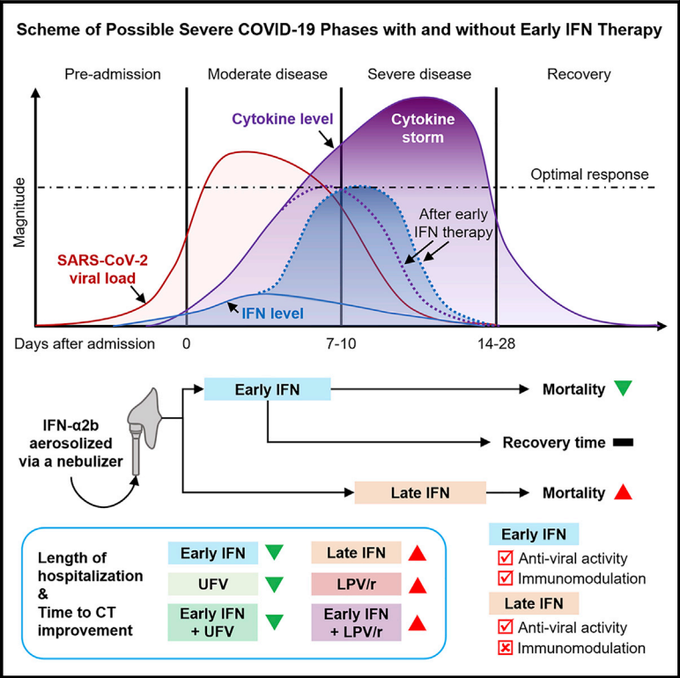
Interferons (IFNs) are widely used in treating coronavirus disease 2019 (COVID-19) patients. However, a recent report of ACE2, the host factor mediating SARS-Cov-2 infection, identifying it as interferon-stimulated raised considerable safety concern.
To examine the association between the use and timing of IFN-α2b and clinical outcomes, we analyzed in a retrospective multicenter cohort study of 446 COVID-19 patients in Hubei, China.
Regression models estimated that early administration (≤5 days after admission) of IFN-α2b was associated with reduced in-hospital mortality in comparison with no admission of IFN-α2b, whereas late administration of IFN-α2b was associated with increased mortality.
Among survivors, early IFN-α2b was not associated with hospital discharge or computed tomography (CT) scan improvement, whereas late IFN-α2b was associated with delayed recovery.
Additionally, early IFN-α2b and umifenovir alone or together were associated with reduced mortality and accelerated recovery in comparison with treatment with lopinavir/ritonavir (LPV/r) alone.
Administration of IFN-α2b during the early stage of COVID-19 could induce favorable clinical responses.

Leave a Reply